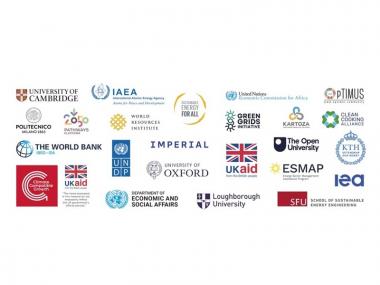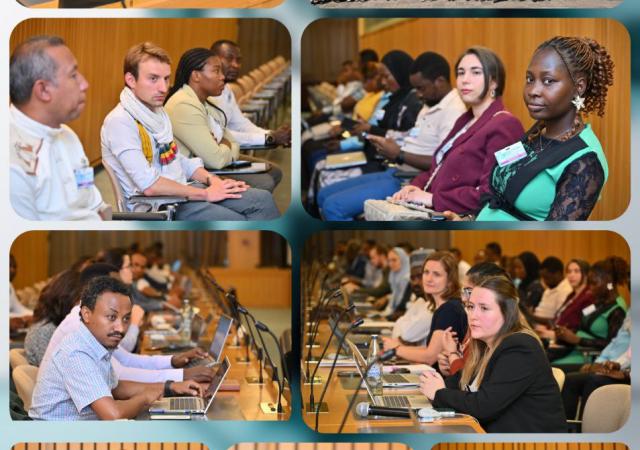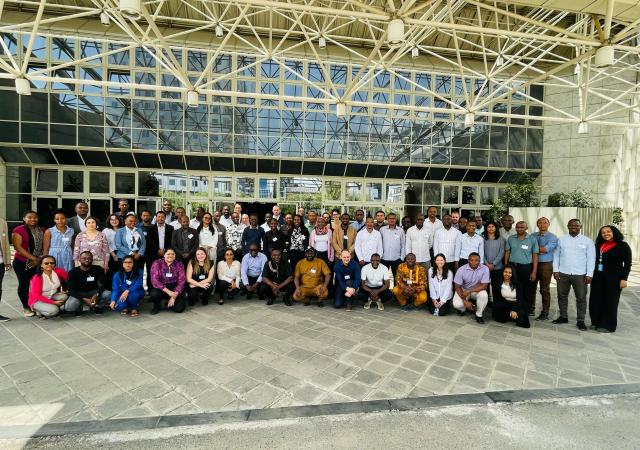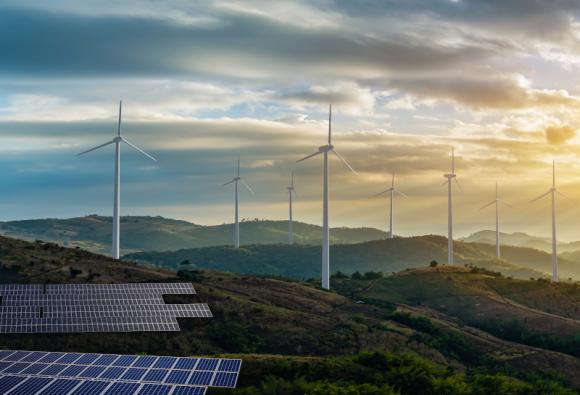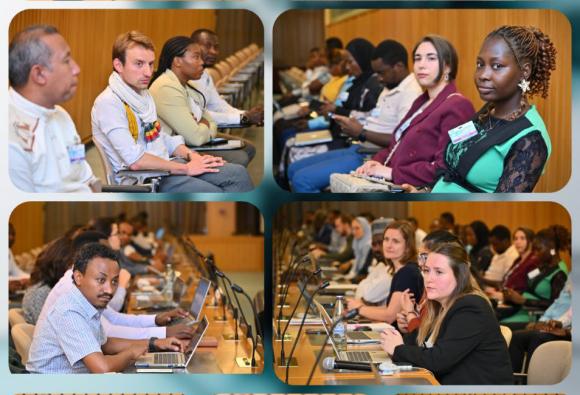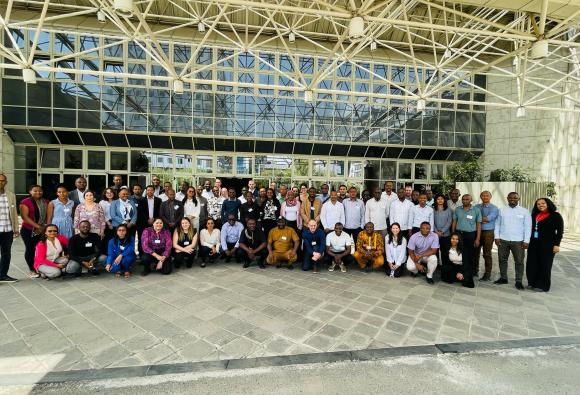This is the sixth round of the Energy Modelling Platform for Africa (EMP-A), which started in 2018 and aims to transfer skills in models and tools for energy planning needs.
There is no fee to attend; however, competition for space is high, and space is limited. Funding is also available for flights and accommodation.
Context
Secure, adequate, and reliable access to modern energy forms and services for livelihoods and industrialisation is critical for attaining Africa’s sustainable and inclusive development transformation, framed by the African Union’s Agenda 2063 and the UN 2030 Agenda for Sustainable Development. This will simultaneously bring about resilience to shocks posed by climate change.
Against a background of increased energy demand for structural transformation, a rising population, the need for sustainable livelihoods, and the adverse impacts of climate change on the continent, there is an urgent need to support African countries to strengthen their capacities in energy planning. This will optimise investments in energy production and services to take advantage of the continent’s abundant renewable energy resources, falling technology prices, and increasing availability of free open-source and robust energy planning models, data, and
interfaces for customised applications to the needs of each country.
Furthermore, almost all African countries have included renewable power generation in their Nationally Determined Contributions (NDCs) to climate action under the Paris Agreement on climate change framework. The prominence of renewable energy in these actions, coupled with Africa’s abundant renewable energy resources (including variable renewable energy sources such as wind and solar) and the urgent need to mobilise investments to meet a considerable energy deficit on the continent, requires strategic assessment planning. This is needed to ensure (i) enough generation capacity and expansion of supply to meet demand, (ii) system flexibility to accommodate high shares of renewables, (iii) adequate transmission capacity to dispatch power to demand centres, (iv) grid stability to accommodate short time frame variations, (v) appropriate and effective off-grid systems, (vi) optimised investments that capitalise on falling costs of low-carbon technologies to minimise the risk of stranded underperforming energy infrastructure assets in the future, and (vii) sustainable and coordinated use of energy, land, and water resources. Climate action has gained even more credence in light of the ongoing energy transition and growing calls for Africa to define net-zero emission targets. Yet, much of Africa has a considerable deficit in human and institutional capacity regarding effectively using models and modelling tools for energy supply, demand, and investment planning and management.
To date, five rounds of the EMP-A, namely EMP-A 18, EMP-A 19, EMP-A 21 ,EMP-A 23 and EMP-A 24 have taken place, witnessing growing participation and resounding calls for more dedicated sessions. EMP-A 2025 will take place from April 21st to May 9th 2025 at the United Nations Economic Comission for Africa (UNECA) in Addis-Ababa, Ethiopia.
Objective
Although the EMP-A acknowledges that different countries and regions within Africa will require context-specific approaches, the overarching objectives of the platform are to:
- Gather the energy planning and modelling community in Africa to share experiences, models, and data in climate, land, energy, and water systems.
- Support human and institutional capacity in Africa for integrated energy modelling and investment planning.
- Support the development of centres of excellence for energy planning in Africa.
- Promote efficient and widespread use of open-source modelling tools to support the implementation of the SDGs, the Paris Agreement, and Africa’s Agenda 2063.
Structure of the EMP-A 2025
This year's EMP-A will be held in person.
The application period is as follows, please make note of the dates below:
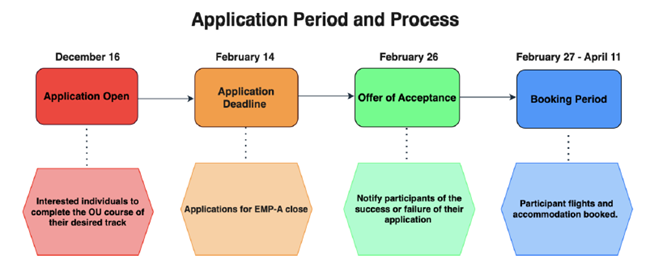
The application period will shortly be followed by the training period, see below for dates and details.
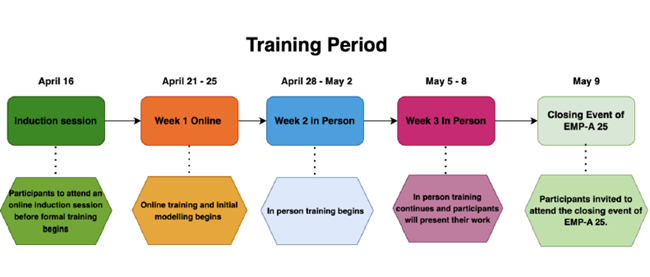
Please note, the “Electricity Transition Playbook” is an in-person week-long course, likely taking place in Week 3 (this will be confirmed later).
During the EMP-A 25, participants will acquire energy and resource modeling skills using ONE of the following open-source modelling tools for sustainable development pathways under leading academics and researchers in the field of model-informed development strategies. There are nine tracks. They will focus on either.
- OnSSET / The Global Electrification Platform
- Energy and Flexibility Modelling: OSeMOSYS & IRENA FlexTool
- FinPlan (Financial Planning of Energy Infrastructure) and Investment Pipelines
- MAED
- Introduction to CLEWS: Climate, Land-Use, Energy and Water Systems
- Electricity Transition Playbook
- Microgridspy and RAMP
- NISMOD C.R./ Climate Resilience
- Energy Access Explorer: A data–driven, Integrated and Inclusive Approach to Planning for Achieving Universal Access to Energy for Equitable Development
Each course has two parts:
- Self-paced study: Participants will complete the track of their choice and attach the certificate of completion on their application form. After participant acceptance an Induction Session will take place (April 16th), where the running of the event and a general introduction to the course will be given. Week 1 of the School (April 21st to 25th) will be conducted online. Coaching and troubleshooting sessions will be scheduled to support applicants and further their modelling knowledge.
- In-depth hands-on training Week 2 and Week 3 (April 28th to May 8th) is comprised of an interactive component with dedicated trainers (except for the “Electricity Transition Playbook”, which is an in-person week-long course and will most take place in week 3). Applicants will receive further coaching and training on using the tool from their chosen track for a national case study. Applicants are expected to develop a report, and an 'elevator pitch' presentation for a senior decision-maker. Applicants are required to present their Presentation and Report at the end of Week 3 (May 8th). Feedback will be given based on these presentations (May 9th).
Participants will receive a certificate on successful completion of the training, once they provide their presentations and reports.
The last day of the School (May 9th) will be dedicated to a closing event for EMPA-25.
The substance of the event is yet to be determined with event hosting partners.
Application
Regular EMP Application
There is no fee to attend; however, competition for space is high, and space is limited. Applicants interested in participating in the EMP-A are required to complete the application form with the attached using the link below:
https://loughboro.qualtrics.com/jfe/form/SV_3HJNCxuA3qiXCJM
This form has a ‘Personal Details’ section and an ‘Application’ section, where candidates are required to share information such as, but not limited to, their current job responsibilities, motivation for the application, and field of interest. Such writing from the candidate will subsequently be taken into consideration for the application process.
- In order to be considered, you must attach the Open University certificate of completion for your chosen track to your application.
- Additionally, candidates are required to complete the ‘Modelling, policy and political economy’ course available on the Open University website, and attach the certificate of completion on the application form.
- Furthermore, a stamped Letter of Commitment stipulating an express statement from participants’ respective institutions towards attendance of the module of choice is also mandatory for attendance. Please do not mention your personal details (Name, Company/Organization, Email Address, Mobile Telephone); the letter should only include the details of the individual signing the letter. To apply, you will have to demonstrate:
- That the output of your study is in demand by the government that you represent; or
- That the skills, tools, and teaching material that you acquire will be used in university teaching or government planning knowledge management; or
- That the output will fit into policy-relevant research to be published on a visible platform.
Supporting documentation will require a letter from a head of unit or higher (government) or head of department or higher (university and others). Exceptions will be made for selected candidates from participating organisations and ongoing technical assistance programmes, and applicants will be notified via those channels. Priority will be given to participants from countries with a demonstrated need and ability to apply the training to policy development.
The selection of participants will include considerations of equity, diversity, and inclusion.
In completing the application, you will also be required to submit a Letter of Motivation via the application form, in which the you state why you should be selected for the course, and how your background knowledge and experience makes you an ideal candidate (1200 characters). Please ensure to exclude any personal data in the Motivation letter.
The deadline to submit the application form for participants who wish to attend in person is at 12.00 pm (GMT) on February 14th. If unsuccessful, applicants may still be considered for online participation. It should be noted that spaces are limited and the application process is highly competitive.
Furthermore, full-time commitment towards the EMP-A is crucial.
Funding for in person participants
Funding will be made available for some in person participants to cover the cost of flights and/or accommodation. However, participants not selected for funding can still attend at their own expense, or can be funded by other organizations. Please specify in your application if you wish to be considered for funding.
IT requirements
Note that participants will require a computer with stable internet access to participate in the training. It is recommended, for all tracks, that participants have at least 8 GB of RAM and a relatively new computer. Specific Tracks have additional computer requirements above and beyond this minimum:
- CLEWs - Windows 10 computer
- Energy and Flexibility Modelling: OSeMOSYS & IRENA FlexTool - Windows 10 computer, 8GB RAM, MS Office with Microsoft Access.
Partners
In alphabetical order:
- African Climate Policy Centre - United Nations Economic Commission for Africa (ACPC-UNECA)
- Climate Compatible Growth Programme (#CCG)
- Energy Sector Management Assistance Program (ESMAP)
- Green Grid Initiative (GGI)
- International Atomic Energy Agency (IAEA)
- International Renewable Energy Agency (IRENA)
- Imperial College London (ICL)
- Kartoza
- KTH Royal Institute of Technology (KTH)
- OpTIMUS Community of Practice
- Politechnico Di Milano
- Simon Fraser University
- Sustainable Energy for All (SEforALL)
- The Loughborough Centre for Sustainable Transitions: Energy, Environment, and Resilience (STEER)
- United Kingdom Foreign, Commonwealth and Development Office (UK FCDO)
- United Nations Department of Economic and Social Affairs (UNDESA)
- United Nations Development Programme (UNDP)
- University of Cambridge
- University of Oxford
- World Resource Institute (WRI)
- World Bank Group (WBG)
- 2050 Pathways Platform
Further information contact: inquiries@optimus.community or r.yeganyan1@lboro.ac.uk or r.mcgrane@lboro.ac.uk
Documents
